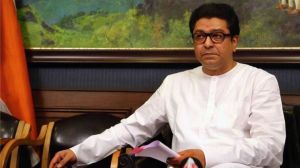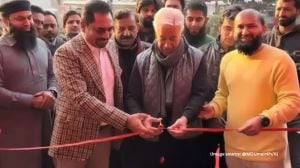Shifting abode
I am an ancient play on the stage of time/ I die and become immortal.Ali Sardar Jafri had become a legend in his lifetime. Passing from th...

I am an ancient play on the stage of time/ I die and become immortal.
Ali Sardar Jafri had become a legend in his lifetime. Passing from the flask of the past, as he said, to the cup of the future, one journey is completed only to begin another. These lines from Jafri Saheb8217;s poem quot;My Journeyquot; capture the truth of the poet8217;s own life and predicament. When his demise of was flashed by the media, what was announced was really the end of a very precious chapter in history. But then, with a poet like him, death can actually be looked into the eye squarely. It bows to the throb of life, pulsating in his verse, and withdraws.
With his ardent commitment to Progressivism, Jafri Saheb8217;s art was not for art8217;s sake. He used poetry as an instrument of his activism, dedicated to fight parochial and fundamentalist forces. In 1936, when Aligarh Muslim University turned him out because of his involvement in the student unrest and strikes against the British, he came to Delhi and completed his BA from Dilli College, now Zakir Husain College. quot;There is only one form of war I can endorse. A war of words,quot; was his constant refrain. He waged his wars against oppressive forces and combated class discrimination and imperialism.
Ali Sardar Jafri entered the world of literature as a short story writer with his first collection Manzil in 1938. Five years later came his collection of poems Parvaz, which established him amongst the spectrum of writers in Urdu vibrantly involved both in social action and art. He joined the company of such luminaries as Krishan Chander, Ismat Chughtai, Sahir Ludhianavi and Kaifi Azmi. Together they heralded an era of Progressive ideals, with Jafri Saheb fervently editing Guftagu, a journal to disseminate select literature projecting humanist and secular values. One of Jafri Saheb8217;s earlier collections of poems Patthar ki Deewar created a stir and made way for blank verse in an otherwise conservative poetic tradition.
Jafri Saheb8217;s critical book Taraqqi-Pasand Adab, presenting the genesis, rationale and relevance of Progressive writing, has been widely acclaimed. It gave the literary movement of Progressivism the foundation of a serious critique and helped art to steer out of the haze of romance. It also had to survive the onslaught of the Modernist glamour. Jafri Saheb8217;s dreamt of a just world8217; and, with poem after poem, he aspired to bring about social change.
When in 1947 he chose not to migrate to Pakistan, he reasoned, quot;I cannot go because I cannot leave behind the arhar ki dal of my Gonda district of UP.quot; Often did he plead for a unified culture bridging the gulf between India and Pakistan. His collection of poems, Sarhad, reiterated his wish to eliminate points of differences, to reach across the borders. A person with tremendous faith in the essential goodness of man, Jafri Saheb worked like a crusader to translate his ideals into practice. His prodigious output of 21 books includes verse, memoirs, critical essays, plays and travelogues.
Identifying completely with the liberal ideas of such poets as Ghalib, Kabir and Meera Bai, he transcended the restrictive social mores of his times. His books Kabir Vani and Prem Vani on Meera Bai are exemplary both in their appearance as well as content. His feminism brought within his ken the crucial issue of the plight of working women in Bombay. His film Gyarah Hazar Ladkiyan is a depiction of their daily struggle.
Talking of the audio-visual media, the resounding voice that brings history alive daily at the quot;light and sound showquot; at Red Fort, Delhi, is that of Ali Sardar Jafri. The poet8217;s voice will continue to reverberate in the hearts of all the spectators.
- 01
- 02
- 03
- 04
- 05































